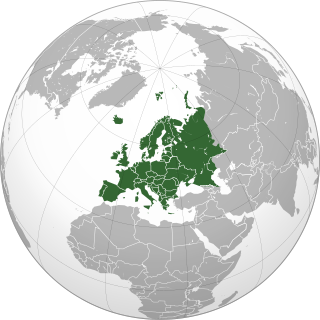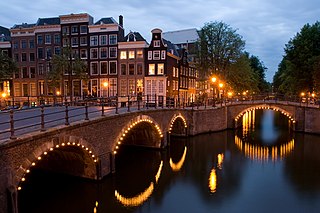Biography
In 1983 Rytis Mažulis graduated from Julius Juzeliūnas's composition class at the Lithuanian Academy of Music. In 1988 he won with the "Tyla" Prize for his chamber piece "The Sleep", and in 1989 he was awarded the Lithuanian Culture Fund Prize for chamber and vocal music. Mažulis received a scholarship from the Akademie Schloss Solitude, Stuttgart, for the period from September 1998 to April 1999. He was twice awarded the prize for the best vocal composition ("ajapajapam", 2002; "Form Is Emptiness", 2006) at the competition organized by the Lithuanian Composers' Union. In 2004 he was awarded the Lithuanian National Prize. In 2006 Rytis Mažulis was appointed Head of the Composition Department of the Lithuanian Academy of Music and Theatre.

The Lithuanian Academy of Music and Theatre in Vilnius, Lithuania, is a state-supported conservatory that trains students in music, theatre, and multimedia arts.

The Akademie Schloss Solitude is a foundation under public law. The main aspect of the Akademie is to promote mainly younger, particularly gifted artists by means of residency fellowships and also by organizing events and exhibitions by its residents. The Akademie Schloss Solitude is subsidized by the State of Baden-Württemberg.
The Lithuanian National Prize, established in 1989, is an award granted for achievements in culture and the arts. It has been awarded annually in six categories since 2006. The prize is formally bestowed on February 16, when the decorations and diplomas are presented to the laureates at Presidential Palace, commemorating the anniversary of the 1918 Act of Independence of Lithuania.
Works by Mažulis are frequently performed at festivals throughout Europe: Nyyd (Tallinn, 1991), Musikhøst (Odense, 1992), Deutschlandfunk (Cologne, 1992), Prague Spring (1995), Norrtelje Chamber Music Festival (1995), De Suite Muziekweek (Amsterdam, 1995), Minimalisms (Berlin, 1998), Klang Raum (Stuttgart, 1998), 53. Arbeitstagung von Institut für neue Musik und Musikerziehung (Darmstadt, 1999), MaerzMusik (Berlin, 2003), Melos-Ethos (Bratislava, 2005), Huddersfield Contemporary Music Festival (2006, 2007), Images Sonores (Liege, 2007), ISCM World Music Days (Vilnius, 2008), as well as at concerts in Warsaw, Gdansk, Düsseldorf, Akademie Schloss Solitude in Stuttgart (1994, 1999), Queen Elizabeth Hall in London (1995).

Europe is a continent located entirely in the Northern Hemisphere and mostly in the Eastern Hemisphere. It is bordered by the Arctic Ocean to the north, the Atlantic Ocean to the west and the Mediterranean Sea to the south. It comprises the westernmost part of Eurasia.

Cologne is the largest city of Germany's most populous federal state of North Rhine-Westphalia, and its 1 million+ (2016) inhabitants make it the fourth most populous city in Germany after Berlin, Hamburg, and Munich. The largest city on the Rhine, it is also the most populous city both of the Rhine-Ruhr Metropolitan Region, which is Germany's largest and one of Europe's major metropolitan areas, and of the Rhineland. Centred on the left bank of the Rhine, Cologne is about 45 kilometres (28 mi) southeast of North Rhine-Westphalia's capital of Düsseldorf and 25 kilometres (16 mi) northwest of Bonn. It is the largest city in the Central Franconian and Ripuarian dialect areas.

Amsterdam is the capital city and most populous municipality of the Netherlands. Its status as the capital is mandated by the Constitution of the Netherlands, although it is not the seat of the government, which is The Hague. Amsterdam has a population of 851,373 within the city proper, 1,351,587 in the urban area and 2,410,960 in the metropolitan area. The city is located in the province of North Holland in the west of the country but is not its capital, which is Haarlem. The metropolitan area comprises much of the northern part of the Randstad, one of the larger conurbations in Europe, with a population of approximately 8 million.
Rytis Mažulis' works are stylistically pure, frequently using canonical techniques and concentric forms. [1] Because these composition techniques need the right instrumentation to make a homogeneous and crystal-clear sound, Mažulis usually writes for ensembles of equal voices or for all keyboard instruments. These pieces are either performed live or when his music is impossible to perform with conventional instruments- realized with computer, treated as a kind of super-piano. For example, in his piece "Palindrome" there are micro-tonal pitch gradations, non-standard divisions of rhythmic values and the simultaneous pulsing of different tempos. His "Clavier of Pure Reason" also cannot easily be performed live, but for a different reason: it needs an ensemble of at least 24 pianos. Mažulis's works are not just stylistically pure, they also show a subtle sense of humor.

Microtonal music or microtonality is the use in music of microtones—intervals smaller than a semitone, also called "microintervals". It may also be extended to include any music using intervals not found in the customary Western tuning of twelve equal intervals per octave. In other words, a microtone may be thought of as a note that falls between the keys of a piano tuned in equal temperament.
This page is based on this
Wikipedia article Text is available under the
CC BY-SA 4.0 license; additional terms may apply.
Images, videos and audio are available under their respective licenses.












